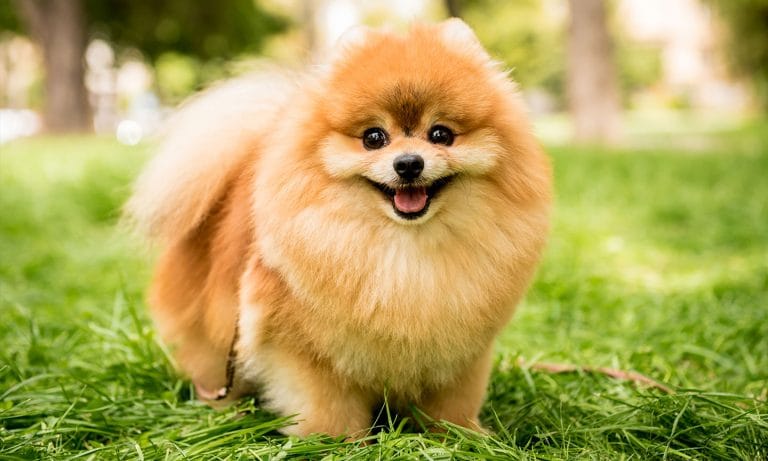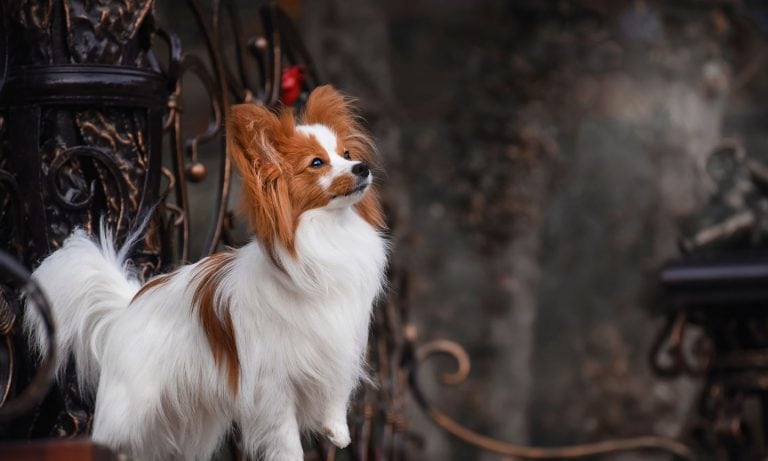Pomeranian vs Papillon

Breed Snapshot
Best For
Cuddly and compact, Pomeranians thrive on attention and play. With a vibrant personality and moderate exercise needs, these affectionate companions are perfect for anyone seeking a lively companion who flourishes with love and quality time...
Cuddly and compact, Pomeranians thrive on attention and play. With a vibrant personality and moderate exercise needs, these affectionate companions are perfect for anyone seeking a lively companion who flourishes with love and quality time together.
Pomeranian Temperament
Happy-go-lucky is a Pomeranian’s middle name, as their personality is equal parts friendly and inquisitive. They live for social interactions and to make their pet parents laugh out loud. If you have kids at your house, you’ll be glad to learn that aggressiveness isn’t typically...
Happy-go-lucky is a Pomeranian’s middle name, as their personality is equal parts friendly and inquisitive. They live for social interactions and to make their pet parents laugh out loud.
If you have kids at your house, you’ll be glad to learn that aggressiveness isn’t typically in this dog’s nature. Pomeranians aren’t known to be biters, although any dog may snap if provoked. So, teach children to handle dogs with care, and keep a close eye on toddlers and preschoolers who may accidentally drop or clutch this fluffy furball too tightly—it’s easy to mistake a tiny Pomeranian for a favorite stuffed animal. Still, this breed is known to be rather compatible with their extended family, whether it includes other dogs, cats or children.
Not only do they have the looks, but also the smarts. Poms have competency in spades and they’re adept at picking up fun new tricks. If you’re hoping to try obedience classes with your Pomeranian, this breed is keenly intelligent and likely to get good grades!
Not surprisingly, the Pomeranian excels at jobs such as work as a therapy dog and is also known to make a fine watchdog since they’re not afraid to bark. And if looking absolutely adorable is considered a type of employment, then a Pom fills this requirement too—and you should hire this fur baby, pronto!
Pomeranians are sometimes described as cocky, which likely refers to their proud gait and bouncy personality. Smart, perky and alert to everything around them, the Pomeranian breed’s generally positive temperament makes them worthy of top-dog status in many types of families.
Pomeranian Traits

Breed Snapshot
Best For
Intelligent and full of energy, Papillons thrive with active pup parents who can provide physical exercise, mental stimulation, companionship and regular grooming (just look at that long, silky coat!). Because they're so small and adaptable,...
Intelligent and full of energy, Papillons thrive with active pup parents who can provide physical exercise, mental stimulation, companionship and regular grooming (just look at that long, silky coat!). Because they're so small and adaptable, Papillons are well-suited for homes large and small.
Papillon Temperament
Papillons are energetic little dogs who love adventure. They are confident, outgoing and generally get along well with everyone when they’re properly socialized and trained. Without plenty of socialization, these tiny pups can grow up to be overly dependent on their pet parents, so it’s important when rai...
Papillons are energetic little dogs who love adventure. They are confident, outgoing and generally get along well with everyone when they’re properly socialized and trained. Without plenty of socialization, these tiny pups can grow up to be overly dependent on their pet parents, so it’s important when raising a Papillon puppy to introduce them to a wide variety of people, pets and situations to build their confidence. But once that confidence kicks in, watch out—Papillons don’t know their own size, and their spunky, fearless attitudes can get them into trouble with larger dogs who won’t put up with their tiny ‘tude.
This cheerful little breed loves to be the life of the party and does well with older children and cats. Their small size and fragility, combined with their overabundant confidence, makes them not so great with small, rambunctious children or larger dogs (even sweet and tolerant large-breed dogs could accidentally injure a tiny Papillon while playing). So, in addition to socializing and training your Papillon, teach your kiddos how to properly interact with pups.




